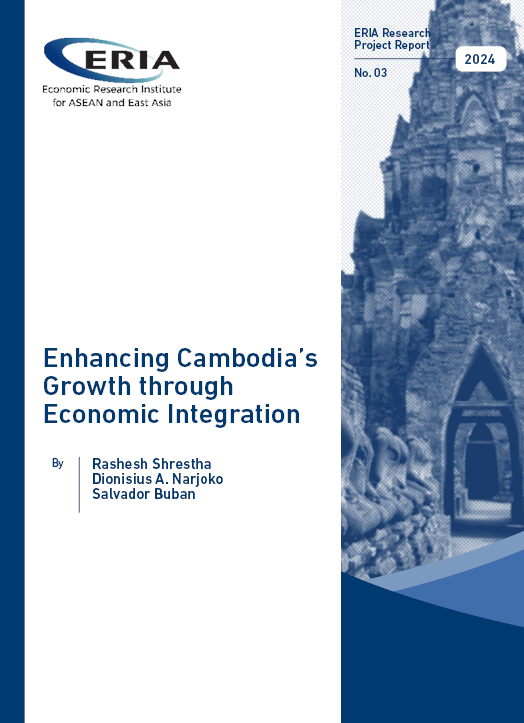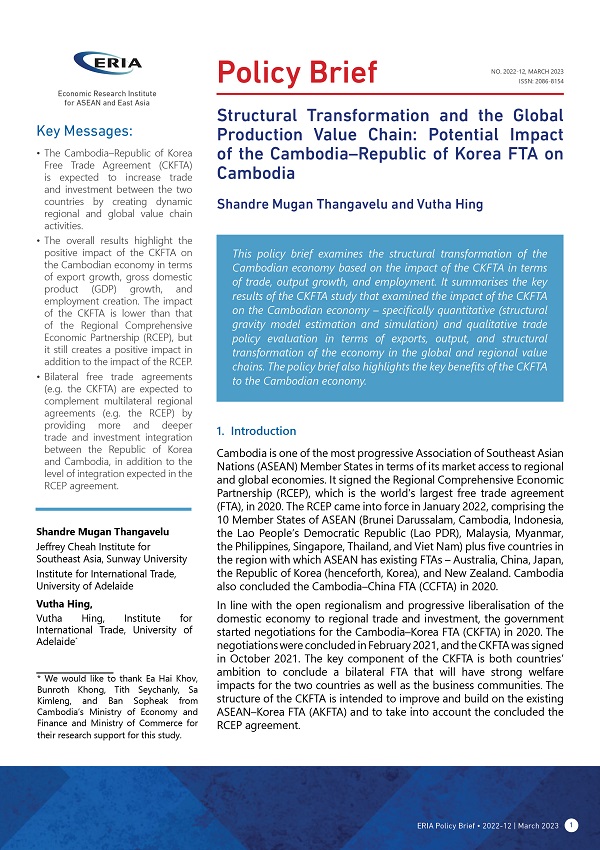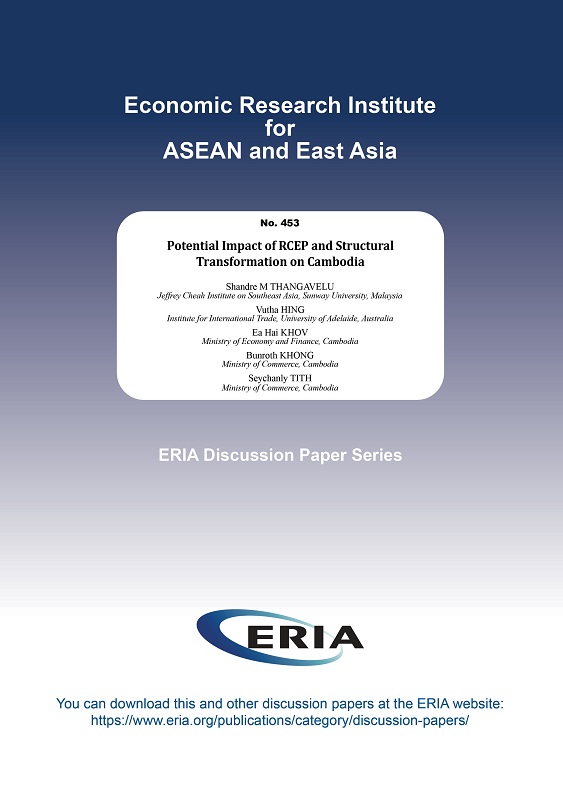Enhancing Cambodia’s Growth through Economic Integration

Date:
27 June 2024Category:
ASEAN, Global Governance and MultilateralismType:
Research Project ReportsTags:
Cambodia, Economic Integration, FTAPrint Article:
This report is an outcome of ERIA’s study conducted to examine how Cambodia can maximise the benefits of greater economic integration with key trade partners. Despite Cambodia’s impressive economic growth over the past 2 decades, driven by international trade and investment and continuous reforms, the economy is not yet broad-based and relies on garment exports to the United States and the European Union. As reliance on a few sectors carries high risk, Cambodia must seek to diversify its export-oriented economic activities. FTAs with key trade partners can serve as vehicles for achieving Cambodia’s economic objectives by fostering deeper trade relationships. Cambodia is pursuing further economic liberalisation and global integration on a bilateral basis with several countries. This study looks at the factors that Cambodia should consider as it embarks on undertaking free trade agreement (FTA) discussions. To maximise the benefits of FTAs, careful consideration must be given to their design and content. The report provides recommendations in this regard and discusses lessons learned from the impact of existing FTAs.
The study also focuses on India as a potential candidate for pursuing a trade agreement to illustrate factors and variables that must be taken into consideration. India’s economic profile, its existing relationship with ASEAN, and its absence from the RCEP stand out as a strategic trade partner for Cambodia. Not only does India have a large market for Cambodia’s exports, India’s strengths in services and technology products could improve the productivity of the Cambodian economy. Although Cambodia and India are connected through agreements like the ASEAN–India Free Trade Agreement (AIFTA) and Duty-Free Tariff Preference Facility, current trade between them is limited to a few sectors, resulting in the underutilisation of these facilities. A bilateral agreement with India, if designed well, could attract more Indian investment into Cambodia's business operations and IT sector, enhancing the services sector and boosting opportunities for global value chain integration.




